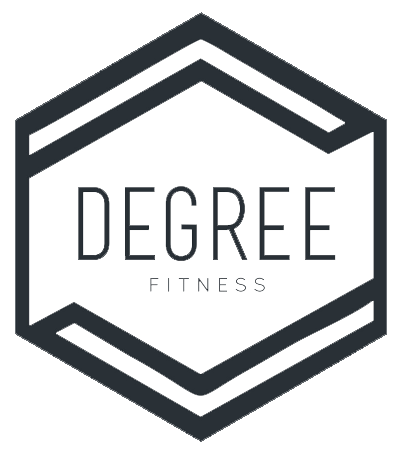4 Ways to *Actually* Achieve your New Years Goals!
Written By: Mairead, Registered Dietitian
With a New Year often comes New Year's resolutions. The "New Year, New Me" energy is everywhere, especially in terms of health and fitness. But when it comes to actually achieving those goals, it can be a whole other story. Many people give up on their goals early on in the year - but a bit more thought up front and a dose of reality can help you set better resolutions and actually achieve them this year!
Check out these tips to make 2025 the year you crush your resolutions!
Set goals that are actions, not outcomes!
Often people set goals like "be healthier", "lose weight", or "build muscle".
While these can be great things to aim for, they are outcomes of other actions, not actions themselves. These outcomes happen because of other activities.
For example, if the outcome you want is to build muscle, the actions you might focus on to achieve this are going to be strength training and meeting your protein goals.
If you want to lose weight, your action goals might be developing a consistent exercise routine and focusing on balanced meals.
These actions are things you are in control of, rather than outcomes of other activities.
Be realistic about your life and yourself!
Despite the "New Year New You" hype, you will still be yourself on January 1st, and many aspects of your life may still be the same as they were in 2024.
We often set goals that are just too aspirational or that fit with someone else's lifestyle but not our actual reality.
Maybe your goal is to exercise more so you plan to wake up at 5am every day to make this happen. But what if your reality is that you're just not a morning person, or you have a job with fluctuating shifts?
A more realistic plan might be to find an exercise routine that you can do at a different time of day, or that is more flexible.
The easier it is to fit your goal into your current life, the more likely you are to actually achieve it!
Think through the steps you'll need to achieve your goals - and then plan for them!
Setting a goal is only the first step to making it a reality.
There are likely at least a few other steps you need to take to get there. Taking the time to figure out what those steps are and chipping away at them will help you make your goals a reality. For example, maybe your goal is to eat enough protein because you're trying to build or maintain muscle. Your steps might include meeting with a Registered Dietitian to find out how much protein you need and learn more about how to include it in your diet. Then maybe you need to learn to cook one or two new protein options or research recipes.
Maybe you need get into the habit of meal planning.
The main goal is just the tip of the iceberg - the steps behind it are what make it a reality.
Let go of "all or nothing" thinking in your goals!
When people "fail" at their resolutions, it's often because they pick goals that are inflexible or too extreme.
When people can't stick to these rigid goals, they end up giving up, rather than figuring out how to adapt.
Setting goals that are more flexible will make it easier to roll with the punches throughout the year, rather than throwing in the towel in the first month.
For example, setting a goal of cutting out all sugar is very "all or nothing". The first time you're confronted with a treat while out or give into a craving, you might just give up. Changing the goal to eat less of specific sugary foods (but not cutting them out entirely) might be more realistic. You might even choose to pick a certain frequency that you'll enjoy them that is less than your current amount.
Goals don't have to be extreme to help you still see improvements in your health and fitness!
So tell us, what are your goals for 2025?
By setting better and more realistic goals, and making plans for them, you can make changes to see big gains in your health and fitness this year!
For more personalized nutrition advice? Let's chat! Email mairead@degreefitnessseaforth.com or click HERE for more information about our Nutrition Programs!



